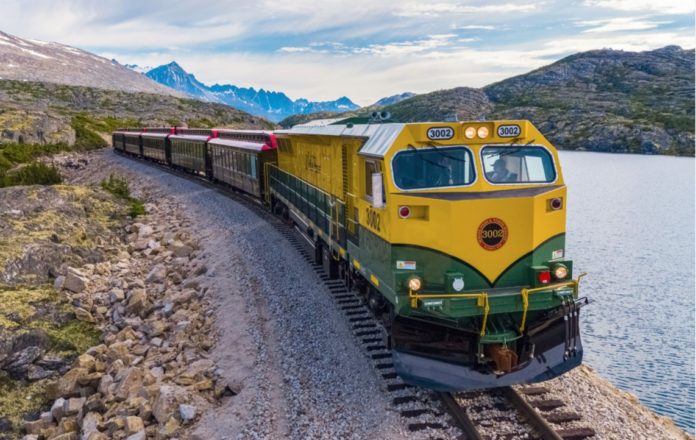The labor union representing operating personnel for the White Pass & Yukon Route in Skagway authorized a strike after nearly six years of unsuccessful negotiations with the railroad.
SMART Transportation Division Local 1626 says the dispute involves wages, healthcare, workforce reduction, and safety.
The strike, if carried out, could have an impact on the early fall travel period in Alaska. But the union must first go through mediation with the railroad, and if that doesn’t work, it must still wait for a 30-day cooling-off period before it can go on strike. That would mean the earliest the strike would be may land at the end of August, but it could still disrupt the plans of cruise ship operators and tourists who are booked on the train.
The railroad is in its 125th year. Built during the Klondike Gold Rush with construction starting in 1898, White Pass is a narrow gauge railroad that is an “International Historic Civil Engineering Landmark,” traveling between Skagway and Whitehorse, Yukon. It also stops at Lake Bennett and Carcross.
The Fraser Meadows Steam Excursion trip is on a steam-powered train that chugs to the summit and back.
During the Covid pandemic, the train was only able to go to the border, since Canada was closed to visitors. This year is one of the biggest years for tourism that Skagway has ever seen.
The union is interested in higher wages that reflect the cost-of-living increases observed over the past six years, since its last labor agreement was signed in 2017. The union says that stagnant wages make it hard for workers to cover their living expenses.
In addition, the union says the railroad is going to shift some healthcare costs back to workers.
Also, the union says that White Pass may eliminate brakemen positions on the trains, something the union opposes because it would add more work to conductors. The union says that brakemen are needed as a safety concern.
Over the Independence Day weekend, a mediation session took place but was unsuccessful and no future dates for mediation meetings were set.ate for future meetings following the conclusion of the recent discussions.
